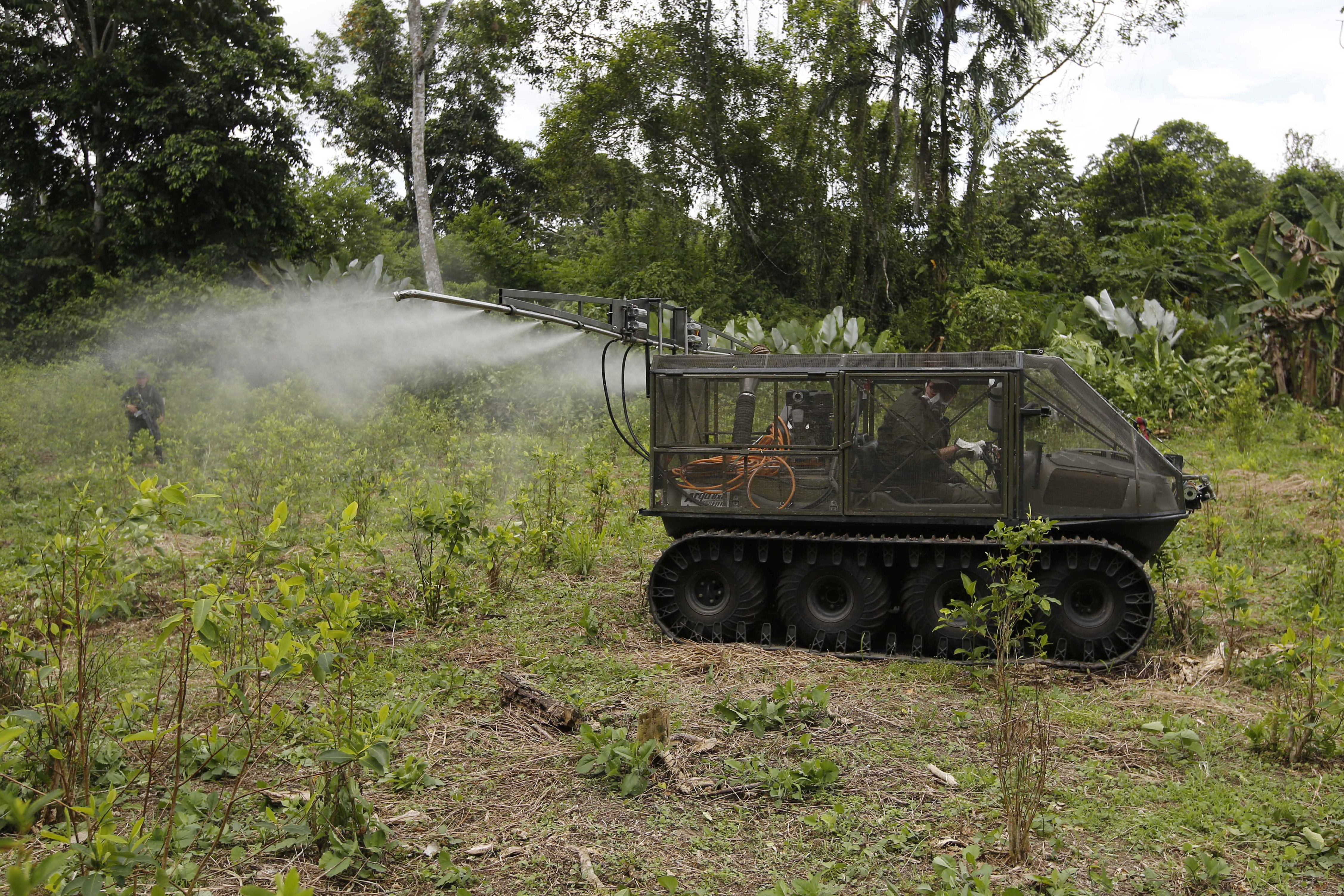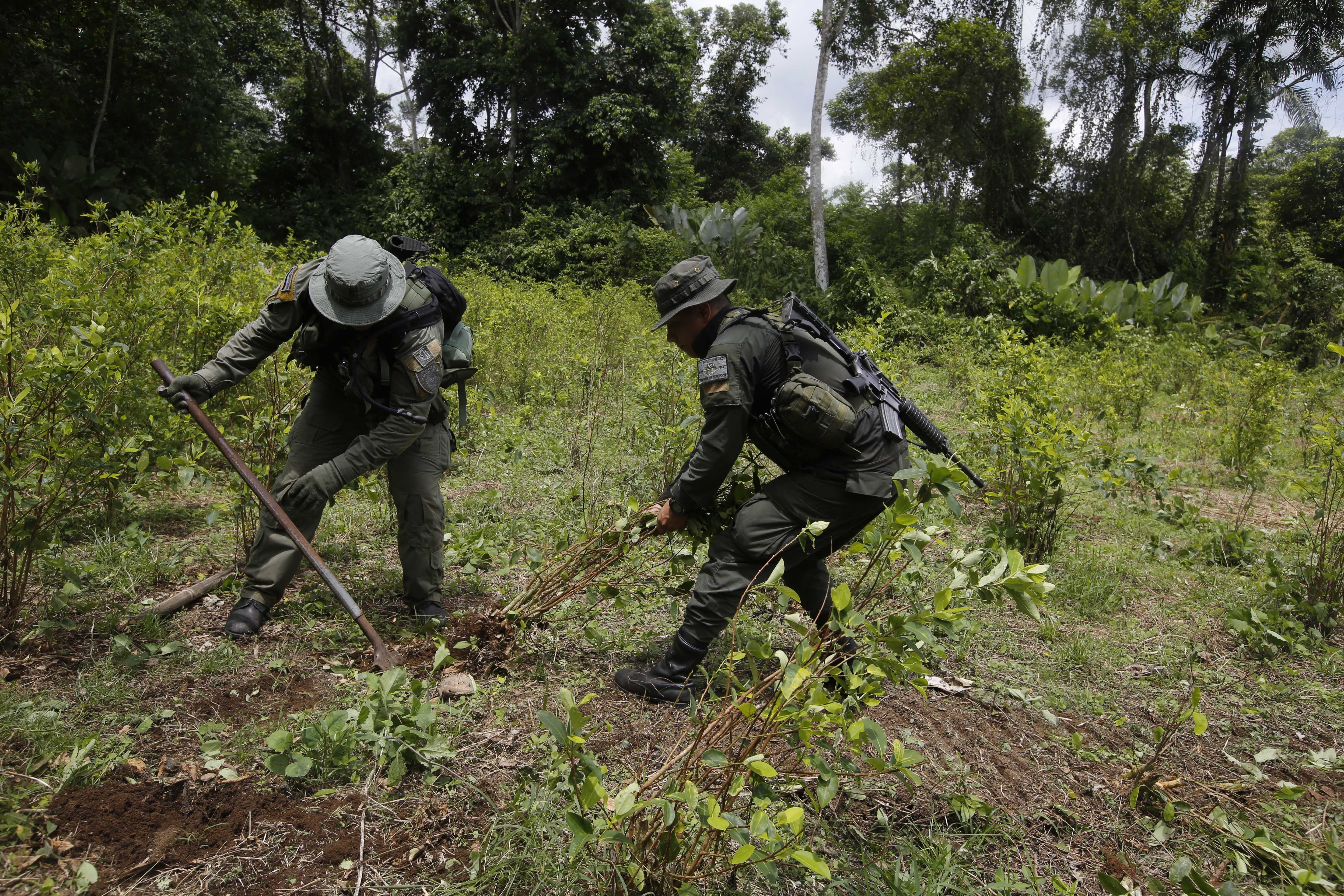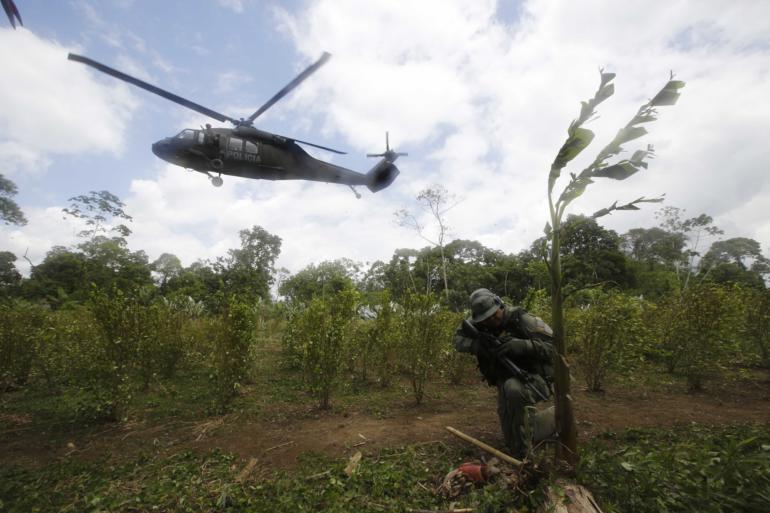Cocaine cultivation in Colombia has reached an all-time high. A report from the United Nations says coca plants cover more than 170,000 hectares.
The finding is putting increasing pressure on new president Ivan Duque to resume aerial spraying of the plants. The program was halted in 2015 over health concerns.
CGTN’s Michelle Begue filed this report from Bogota.
According to the United Nations, Colombia produced more than 1,300 tons of cocaine in 2017. That’s more than 10 times the estimated production in 1993. That was the year before the country began its all-out assault on coca production.
According to a report by the United Nations Office on Drugs and Crime, some 171,000 hectares were used to grow coca plants, which is the source of the illicit drug.

In this file photo, a counter-narcotics police officer tests a tactical vehicle to spray herbicides on a coca field in Tumaco, southern Colombia, Wednesday, April, 18, 2018. (AP Photo/Fernando Vergara)
Colombian President Ivan Duque said he will present new policies for fighting narco-trafficking in the coming days.
“I hope that in the next four years we can have strong results,” President Duque said. “If you ask me, I would hope to set ambitious goals, such as eradicating more than 70-percent of what we have today, but that will depend on how we advance on our integrated policies. But our decision is to go head against this crime.”
According to the U.N., coca cultivation was highest in areas of the country that were previously controlled by the FARC guerilla group that demobilized after a peace deal in 2016.

In this file photo, counter narcotics police officers uproot coca shrubs in Tumaco, southern Colombia, Wednesday, April 18, 2018. (AP Photo/Fernando Vergara)
The government has been criticized for failing to control these regions that have been abandoned by the government. The U.N. stressed the importance of voluntary crop substitution and the development programs that were part of a peace accord with the guerilla group. The U.N. also recommended developing the region, so that farmers can participate in Colombia’s legal economy.
The United States, Colombia’s main ally in the drug war, has also pushed for the resumption of aerial fumigation to destroy coca plants.
 CGTN America
CGTN America
 In this file photo, a counter narcotics police officer takes cover as a helicopter lands on a coca field in Tumaco, southern Colombia, Wednesday, April 18, 2018. (AP Photo/Fernando Vergara)
In this file photo, a counter narcotics police officer takes cover as a helicopter lands on a coca field in Tumaco, southern Colombia, Wednesday, April 18, 2018. (AP Photo/Fernando Vergara)
